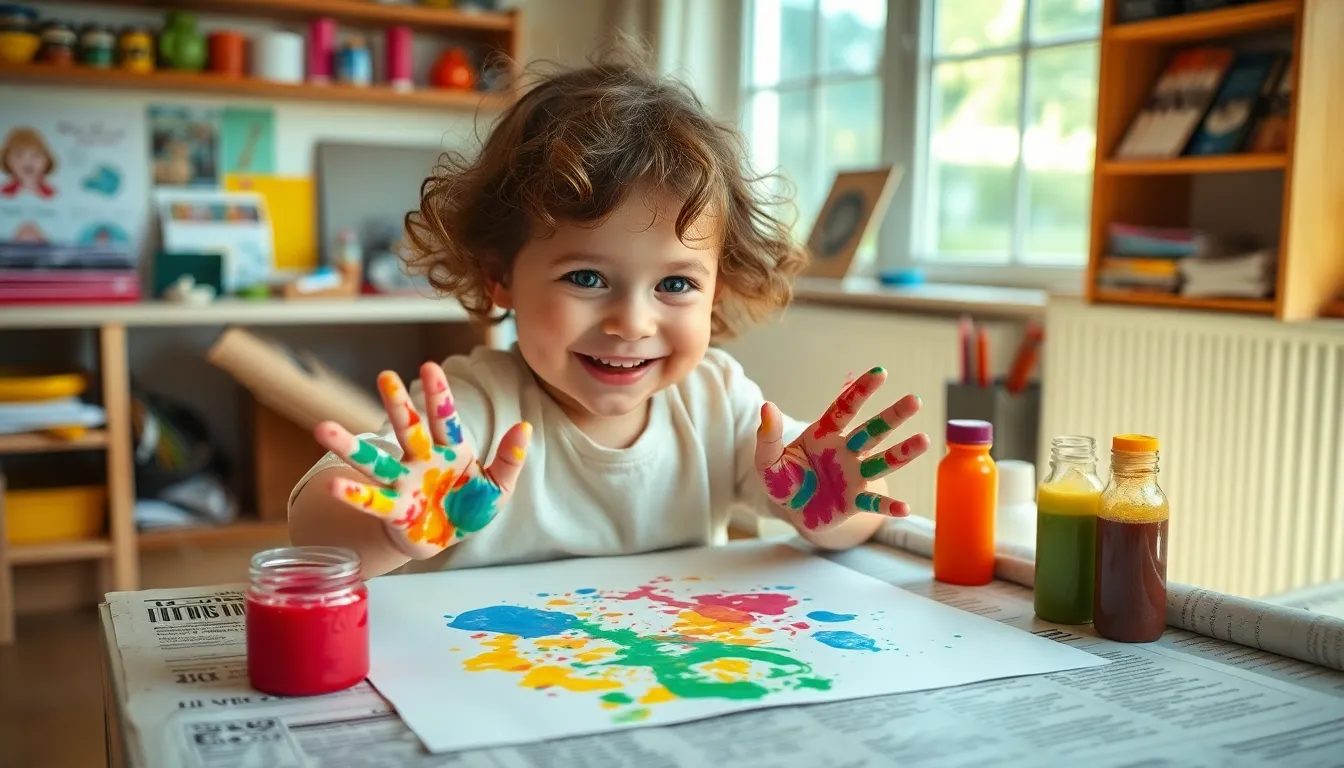Creating a nurturing family environment is like baking a cake—mix the right ingredients, and you’ll have a delightful masterpiece. It’s all about love, support, and a sprinkle of humor to keep things interesting. Imagine a home where laughter echoes through the halls and everyone feels valued, like the last slice of pizza at a party.
Table of Contents
ToggleUnderstanding Nurturing Family Environment
A nurturing family environment fosters positive relationships among family members. This supportive atmosphere enhances emotional well-being and strengthens family bonds.
Definition and Importance
A nurturing family environment refers to a space where love, care, and emotional support thrive. Such an environment plays a crucial role in child development, building self-esteem, and providing security. Research indicates that children raised in supportive families experience higher levels of happiness and resilience. They are better equipped to face challenges and develop healthy social connections. Families that prioritize nurturing promote effective communication, leading to a deeper understanding of one another, ultimately resulting in healthier relationships.
Key Characteristics
Certain characteristics define a nurturing family environment. Open communication enables family members to express feelings and address conflicts. Respect for each individual fosters a sense of belonging and acceptance. Emotional support creates a safe space for family members to share their thoughts without fear of judgment. Consistent routines help children feel secure and provide stability. Additionally, shared time together builds memories and strengthens connections, allowing families to bond over shared activities like game nights or family dinners.
Benefits of a Nurturing Family Environment

A nurturing family environment significantly enhances well-being and development for all members. It provides a foundation for emotional and relational growth.
Emotional Safety and Support
Emotional safety plays a vital role in a nurturing family setting. Family members feel secure to express thoughts and feelings without fear of judgment. Children thrive when they receive encouragement, significantly impacting their self-worth. Emotional support fosters resilience, helping individuals navigate challenges effectively. Parents who actively listen and validate emotions create trustworthy relationships within the family. Open dialogue promotes understanding, allowing everyone to feel valued and respected. Overall, an emotionally safe environment equips individuals with the tools to manage stress and build connections.
Enhanced Developmental Outcomes
Development improves in a nurturing environment through various supportive practices. Healthy relationships foster social skills essential for future interactions. Children exposed to love and encouragement tend to perform better academically than those in less supportive settings. According to recent studies, children raised in nurturing environments display higher emotional intelligence and adaptability. Thus, family routines that involve shared activities enhance cognitive and social development. A stable emotional atmosphere leads to improved mental health in adulthood, resulting in well-rounded individuals capable of contributing positively to society. Positive reinforcement and involvement in family life are key elements in achieving these outcomes.
Creating a Nurturing Family Environment
Creating a nurturing family environment centers on love, humor, and support. Building a foundation where family members feel valued is vital.
Effective Communication Strategies
Encouraging open dialogue fosters trust among family members. Listening actively showcases respect for each person’s thoughts and feelings. Practicing validation strengthens relationships, creating a safe space for sharing. Engaging in regular family meetings allows everyone to voice concerns, promoting a sense of belonging. Using “I” statements helps express feelings without casting blame. Establishing clear boundaries also contributes to healthier interactions. Encouraging appropriate conversations between siblings supports emotional well-being, enhancing conflict resolution skills. Implementing these strategies creates bonds that last.
Establishing Routines and Traditions
Developing consistent routines provides stability for family members. Setting regular mealtimes encourages connection and conversation. Families should establish traditions, such as game nights or weekend outings, to create lasting memories. Everyone benefits from knowing what to expect, which fosters a sense of security. Implementing daily check-ins allows family members to share highlights from their day. Celebrating achievements, big and small, builds confidence and reinforces familial support. Creating a rhythm within family life enhances emotional resilience while grounding relationships in shared experiences.
Challenges in Nurturing Family Environment
Creating a nurturing family environment comes with challenges that can hinder progress and harmony. Identifying and addressing these obstacles is essential for fostering strong relationships.
Identifying Common Barriers
Multiple factors contribute to challenges in a nurturing family environment. One key barrier involves lack of communication, which can lead to misunderstandings and resentment. Another significant hurdle includes varying parenting styles, causing confusion among family members. Additionally, external stressors like work or financial issues often distract from family time. These elements impede emotional support and development, affecting overall well-being. Recognizing these common barriers plays a critical role in transforming a family’s dynamics.
Overcoming Negative Patterns
Overcoming negative patterns requires intentional effort and consistent methods. Setting aside time for open conversations encourages expression and connection. Parents must model positive behaviors to create a healthy environment. Redirecting negative interactions into constructive feedback helps family members learn conflict resolution skills. Establishing routines that include family bonding activities fosters closeness and strengthens relationships. Doing so not only enhances emotional safety but also cultivates resilience among family members.
Creating a nurturing family environment is essential for the well-being and growth of every member. It’s about blending love support and laughter to foster deeper connections. By prioritizing open communication and emotional safety families can cultivate resilience and promote healthy development.
Facing challenges together strengthens bonds and encourages positive interactions. When families invest time in shared activities and establish consistent routines they lay the groundwork for a supportive atmosphere. This intentional effort not only enhances emotional intelligence but also equips children with the skills to navigate life’s complexities.
Ultimately a nurturing environment transforms family dynamics creating a joyful home where everyone feels valued and understood. Embracing these principles leads to a happier healthier family life.








